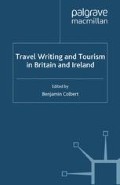Abstract
When Percy Shelley writes in Alastor (1815) of how a poet ‘left / His cold fireside and alienated home / To seek strange truths in undiscovered lands’,1 the implicit irony — to be discovered by the poem’s narrator as he reconstructs the poet’s foreign excursions and death in exile — is that the alienated home has now become the undiscovered land where the strangest truths are to be found. By contrast, Alastor’s precursor, Wordsworth’s The Excursion (1814), resembles a bole closing over a foreign body, the Solitary, the collapse of whose French Revolutionary sympathies have led him to retire, disillusioned, to the English Lake District. Not only unconvinced by Wordsworth’s attempt to re-naturalize the Solitary by localizing him, Shelley dramatizes his Poet’s unsettling foreignness. Alastor’s narrator is led to one conclusion: ‘things / … are not as they were’ (lines 719–20). The Poet has had his influence on this new Wordsworth, who feels within himself what Madame de Staël has called, referring to British travellers in foreign parts, a ‘necessary alienation’, the state of mind in which incomprehension dulls the gloss of pre-conceived familiarity, that textual legacy of accumulated travel writings.2 The politics of alienation are exemplified again in a March 1820 letter in which Mary Shelley satirically re-christens post-Napoleonic England as ‘New Land Castlereagh’, where those who refuse allegiance to the Tory state are branded ‘aliens’ or driven into exile,3 a tableau that expresses the liberal expatriate’s anxiety of belonging, mixed with indignation at oppressions that make expatriation a legitimate protest.
Access this chapter
Tax calculation will be finalised at checkout
Purchases are for personal use only
Preview
Unable to display preview. Download preview PDF.
Notes
Percy Bysshe Shelley, Alastor; or, the Spirit of Solitude, lines 75–7, in The Poems of Shelley, ed. Geoffrey Matthews and Kelvin Everest, vol. 1 (London and New York: Longman, 1989), 467.
Mary Shelley, ‘To Mariane Hunt’, [24 March] 1820, in The Letters of Mary Wollstonecraft Shelley, ed. Betty T. Bennett, 3 vols (Baltimore and London: The Johns Hopkins University Press, 1980), 1: 137–8.
James Buzard, The Beaten Track: European Tourism, Literature, and the Ways to ‘Culture’, 1800–1918 (Oxford: Clarendon Press, 1993), 26.
Bronislaw Szerszynski and John Urry, ‘Visuality, Mobility and the Cosmopolitan: Inhabiting the World from Afar’, The British Journal of Sociology 57.1 (2006), 115.
William Wordsworth, ‘The Brothers’, line 421, in William Wordsworth, ed. Stephen Gill (Oxford: Oxford University Press, 1984), 167.
Simon Burrows, ‘The Cultural Politics of Exile: French Emigré Literary Journalism in London, 1793–1814’, Journal of European Studies 29.2 (1999), 157, Expanded Academic ASAP, Web, 6 February 2011.
See also, Simon Burrows, ‘Émigré journalists and publishers’, in An Oxford Companion to the Romantic Age: British Culture 1776–1832, ed. Iain McCalman (Oxford: Oxford University Press, 1999), 496.
For Gallo-phobia, see Linda Colley, Britons: Forging the Nation 1707–1837 (London: Pimlico, 1994).
See Kurt Mueller-Vollmer, ‘On Germany: Germaine de Staël and the Internationalization of Romanticism’, in The Spirit of Poesy, ed. Richard Block (Evanston: Northwestern University Press, 2000), 51;
and Esther Wohlgemut, Romantic Cosmopolitanism (London: Palgrave Macmillan, 2009). Mueller-Vollmer writes: ‘Romanticism embraced … a new cultural discourse that was international and transcultural in nature, while at the same time extolling the individuality of the participating national cultures’ (151).
Peter Wollen, ‘The Cosmopolitan Ideal in the Arts’, in Travellers’ Tales: Narratives of Home and Displacement, ed. George Robinson, et al. (London: Routledge, 1994), 189–90.
For an overview of Meister’s life and works, see Yvonne de Athayde Grubenmann, Un Cosmopolite Suisse: Jacques-Henri Meister (1744–1826) (Geneva: Librairie E. Droz, 1954).
Rachel Hammersley, French Revolutionaries and English Republicans: The Cordeliers Club, 1790–1794 (Woodbridge: Boydell Press for the Royal Historical Society, 2005), 163.
See René Wellek, A History of Modern Criticism 1750–1950, vol. 2: The Romantic Age (London: Jonathan Cape, 1970), 216–7.
See Gordon Corrigan, Wellington: A Military Life (London: Continuum, 2001), 30–2.
John Scott, A Visit to Paris in 1814; Being a Review of the Moral, Political, Intellectual and Social Condition of the French Capital, 2nd edn (London: Longman, Hurst, Rees, Orme, and Brown, 1815), 4; Robert Southey, Letters from England, ed. Jack Simmons (London: Cresset Press, 1951), 164.
Nicola J. Watson, The Literary Tourist: Readers and Places in Romantic & Victorian Britain (Basingstoke and New York: Palgrave Macmillan, 2006), 155.
Walter Scott, The Journal of Walter Scott, 1825–32, new edn (Edinburgh: Douglas & Foulis, 1927), 626 (entry for 6 July 1828); Thomas De Quincey, ‘Society of the Lakes’ (1840),
qtd in Frederick Burwick, Thomas De Quincey: Knowledge and Power (New York: Palgrave, 2001), 37; Southey, Art. XII, 555.
Editor information
Editors and Affiliations
Copyright information
© 2012 Benjamin Colbert
About this chapter
Cite this chapter
Colbert, B. (2012). Britain through Foreign Eyes: Early Nineteenth-Century Home Tourism in Translation. In: Colbert, B. (eds) Travel Writing and Tourism in Britain and Ireland. Palgrave Macmillan, London. https://doi.org/10.1057/9780230355064_5
Download citation
DOI: https://doi.org/10.1057/9780230355064_5
Publisher Name: Palgrave Macmillan, London
Print ISBN: 978-1-349-32128-5
Online ISBN: 978-0-230-35506-4
eBook Packages: Palgrave Literature CollectionLiterature, Cultural and Media Studies (R0)

